Imagine yourself standing at the foot of towering peaks, the crisp mountain air carrying the scent of wild herbs. The vastness of the landscape stretches before you—snow-capped summits, deep green valleys, and ancient Berber villages nestled into the hillsides. Welcome to the Atlas Mountains, an untamed paradise where adventure, culture, and nature converge.
This guide will take you through the breathtaking beauty of Morocco’s Atlas Mountains, revealing the best places to visit, top activities, and essential travel tips. Whether you seek a thrilling trek to North Africa’s highest peak, a cultural immersion in remote Berber villages, or simply a scenic escape from the bustling cities, the Atlas Mountains promise an unforgettable experience.
Where Are the Atlas Mountains? A Brief Overview
Location and Geography
Stretching across Morocco, Algeria, and Tunisia, the Atlas Mountains serve as a natural barrier between the Sahara Desert and the more fertile regions of North Africa. The most spectacular and accessible sections lie in Morocco, where the range is divided into three distinct regions:
- High Atlas – Home to Mount Toubkal (4,167m), the highest peak in North Africa.
- Middle Atlas – A land of cedar forests and serene lakes.
- Anti-Atlas – A rugged, lesser-explored area with stunning geological formations.
Best Time to Visit
Picking the right season for your trip ensures a comfortable and enjoyable experience:
- Spring (March-May): Perfect for hiking, as the mountains bloom with wildflowers and the weather remains pleasant.
- Autumn (September-November): Offers comfortable weather and clear skies.
- Winter (December-February): The best season for those interested in skiing in the High Atlas region.
- Summer (June-August): Hot in the lower valleys but pleasant in higher altitudes.
Top Destinations in the Atlas Mountains
High Atlas: Home to Morocco’s Highest Peaks
Mount Toubkal – Conquer North Africa’s Tallest Summit
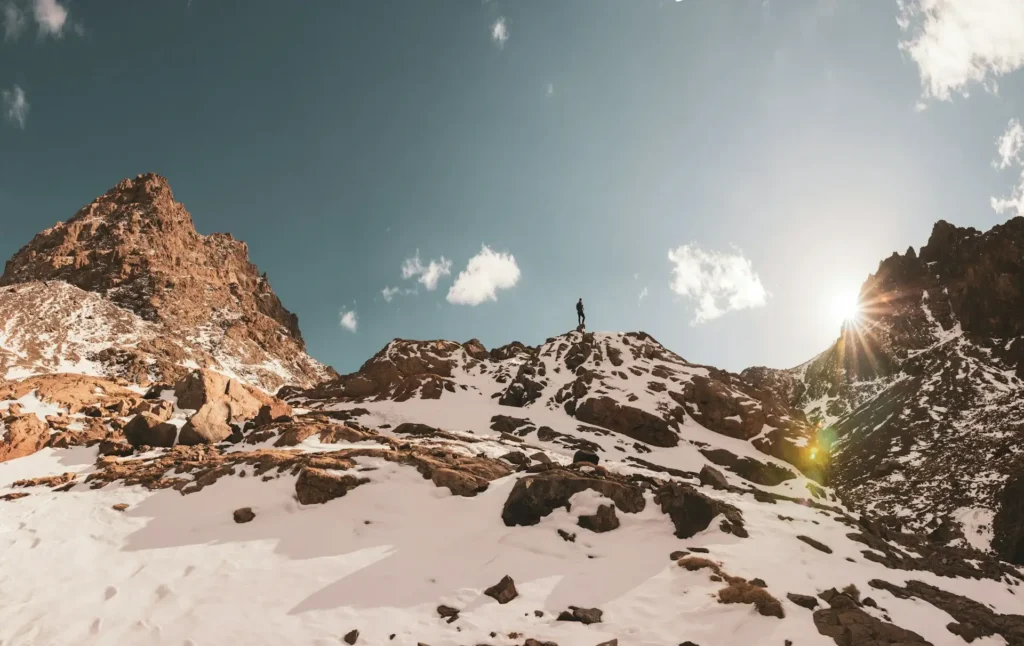
If you’re up for a challenge, trekking Mount Toubkal should be at the top of your list. The ascent takes 2 to 3 days, with a night spent in a mountain refuge before the final push to the summit at sunrise. The reward? A panoramic view of the region and surrounding peaks.
Ourika Valley – A Lush Escape Near Marrakech
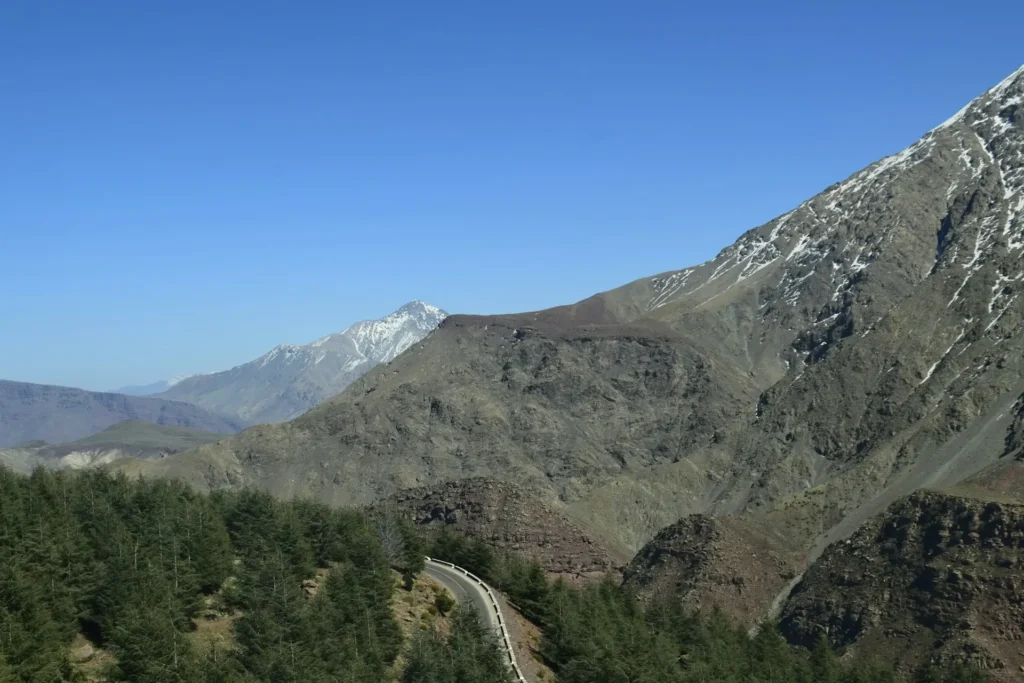
Just an hour’s drive from Marrakech, Ourika Valley offers a refreshing retreat with cascading waterfalls, terraced fields, and cool river streams. It’s a fantastic spot for a quick getaway or a leisurely hike.
Aït Benhaddou – A Step into Morocco’s History
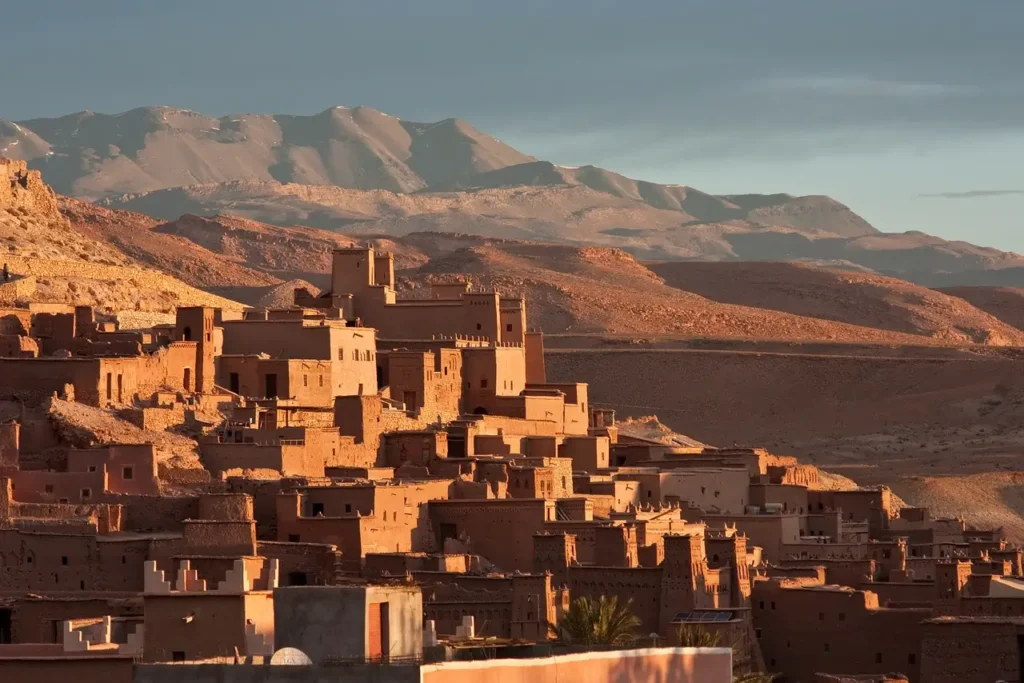
A UNESCO-listed ksar (fortified village), Aït Benhaddou is a breathtaking collection of ancient mud-brick buildings. It has served as a backdrop for movies like Gladiator and Game of Thrones.
Middle Atlas: The Cedar Forests & Lakes
Ifrane – Morocco’s Alpine Town
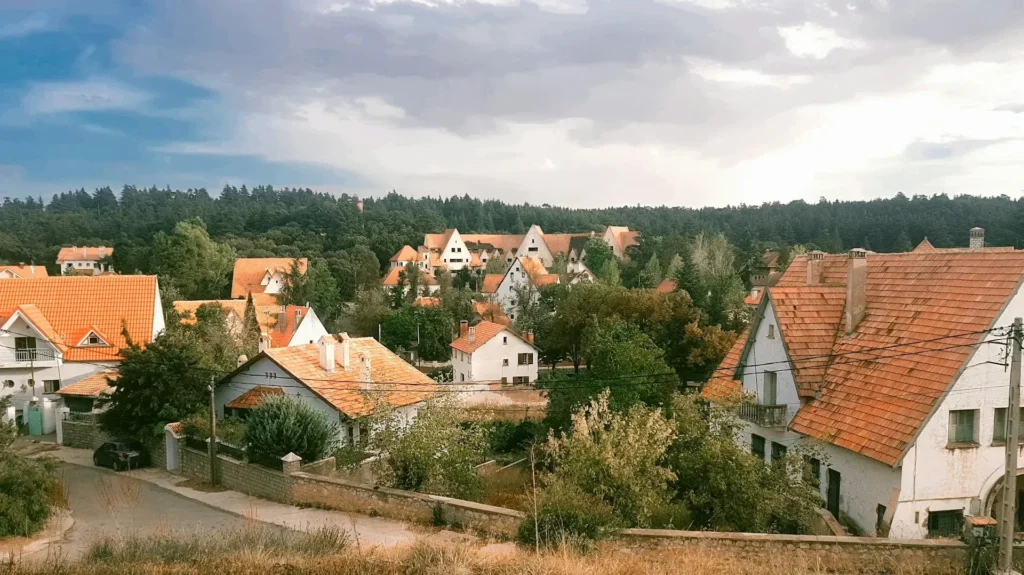
Nicknamed the “Switzerland of Morocco,” Ifrane surprises visitors with its European-style chalets and neatly maintained streets. During winter, the town transforms into a popular skiing destination.
Azrou Cedar Forest – Encounter Barbary Macaques
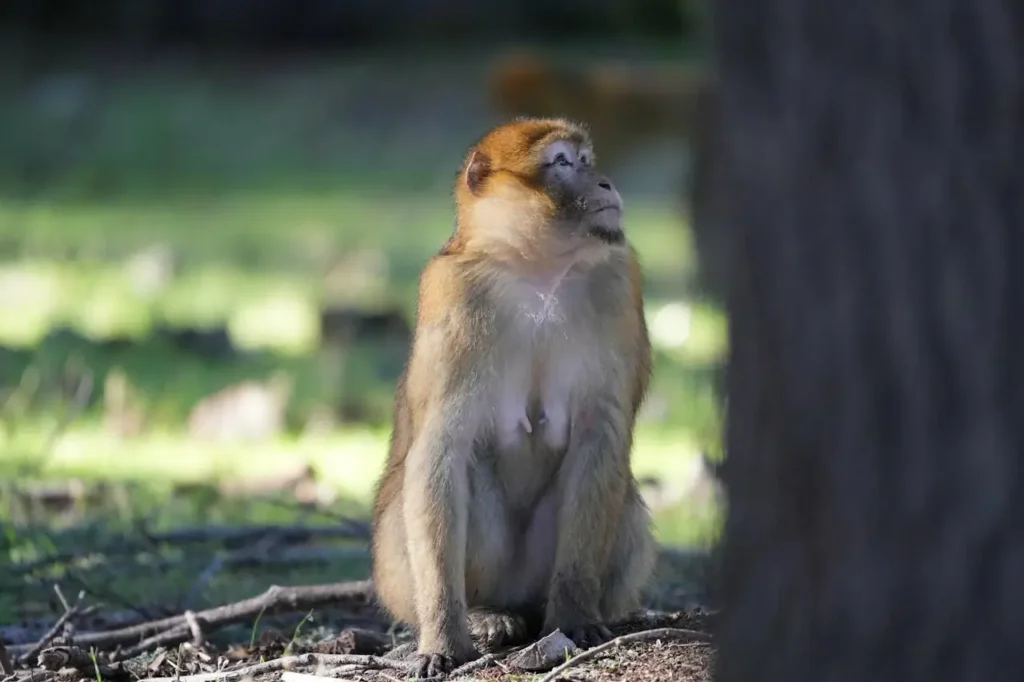
One of the last places where you can see wild Barbary macaques, the cedar forests near Azrou offer beautiful hiking trails and picnic spots.
Lake Aguelmame Sidi Ali – A Hidden Gem for Nature Lovers
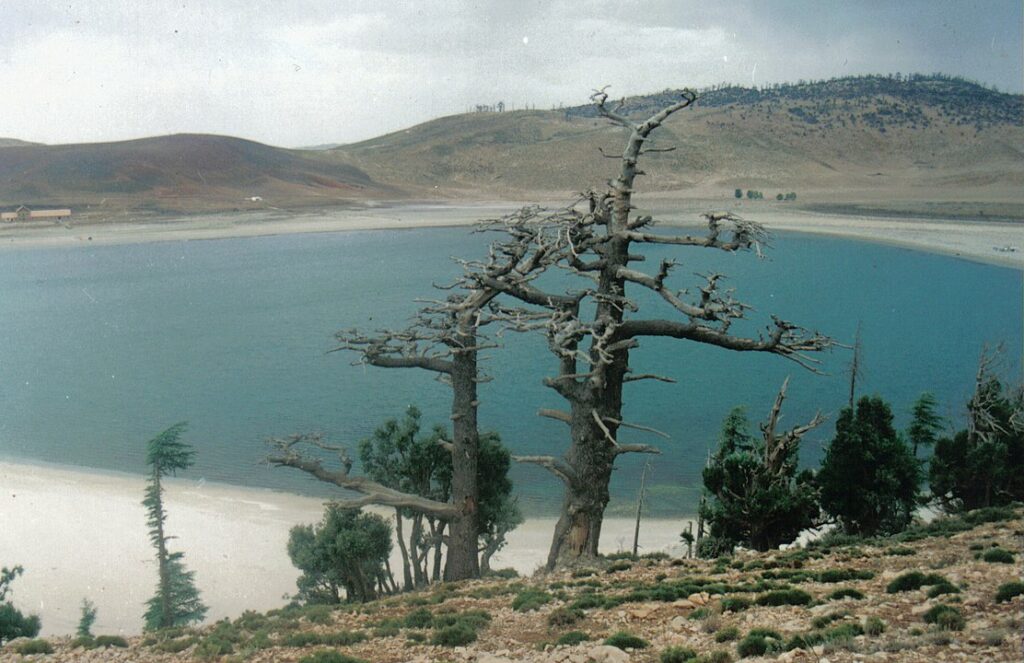
A secluded high-altitude lake with crystal-clear waters, perfect for camping and relaxation.
Anti-Atlas: The Untamed Beauty of Southern Morocco
Tafraoute – Surreal Landscapes and Painted Rocks
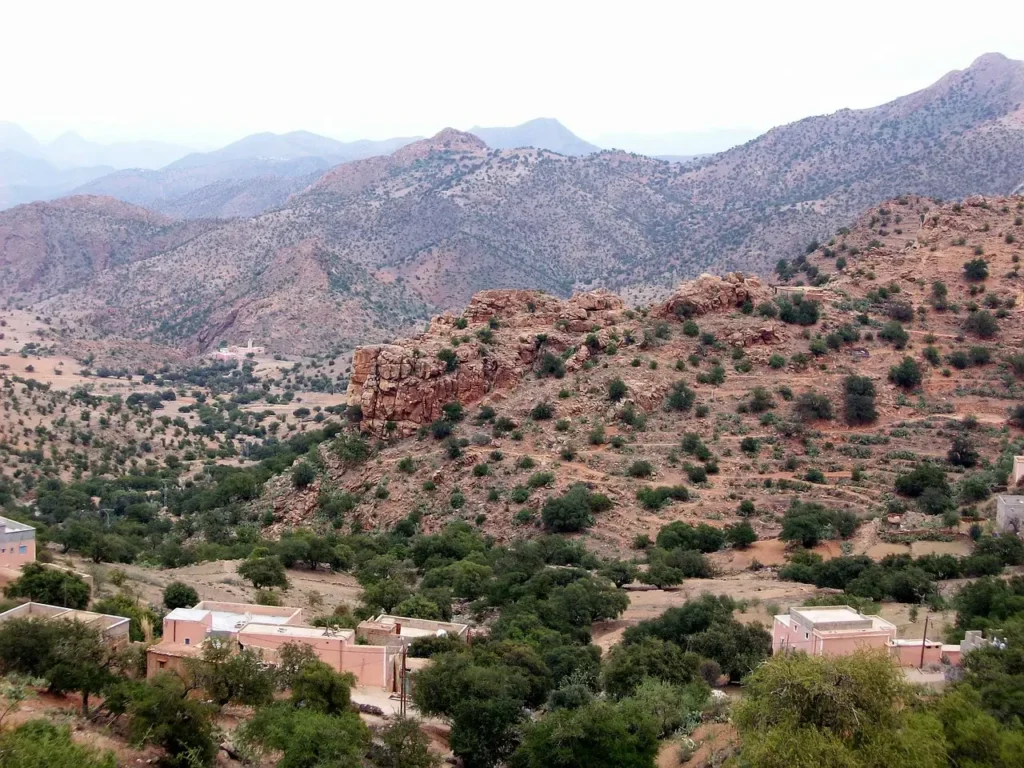
This small town is known for its pink granite mountains and the “Painted Rocks”, an artistic landscape created by Belgian artist Jean Verame.
Jebel Siroua – The Forgotten Volcanic Range
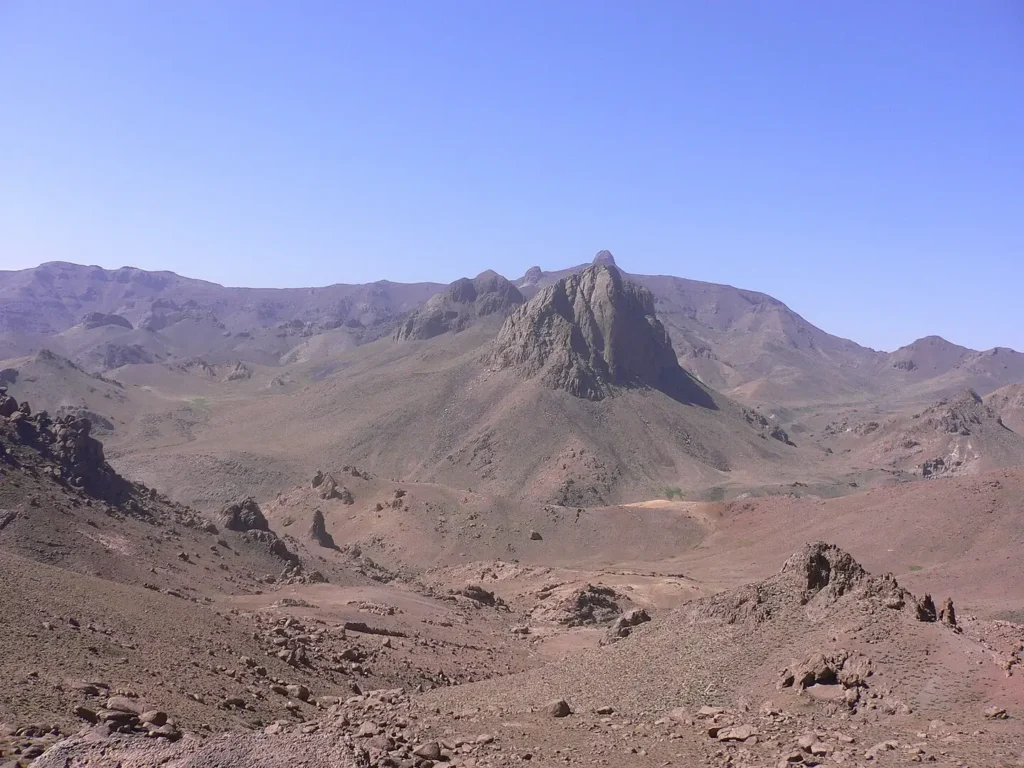
An off-the-beaten-path trekker’s paradise, Jebel Siroua is known for its volcanic rock formations and saffron farms nearby.
Exciting Activities in the Atlas Mountains
Trekking & Hiking Adventures
- Jebel Toubkal: The ultimate challenge.
- M’Goun Massif: A quieter, equally rewarding trek.
- Amezmiz Valley: A lesser-known, scenic trekking route.
Cultural Encounters in Berber Villages
- Stay in a traditional guesthouse and enjoy Berber hospitality.
- Visit local cooperatives to see handwoven rugs and pottery being crafted.
- Participate in a Berber cooking class to learn how to make authentic tagines.
Adventure Sports & Outdoor Activities
- Mountain Biking: Ride through rugged trails and scenic passes.
- Rock Climbing: The Todra and Dades Gorges offer world-class climbing routes.
- Skiing: Oukaïmeden, Morocco’s top ski resort, is perfect for winter sports enthusiasts.
Essential Travel Tips for Exploring the Atlas Mountains
How to Get There
- From Marrakech: The High Atlas is just a 1-2 hour drive away.
- From Fes: The Middle Atlas is easily accessible within a few hours.
- Transport: Rent a 4×4 for remote areas or join guided tours.
Where to Stay
- Luxury: Kasbah Tamadot, a lavish retreat owned by Richard Branson.
- Mid-Range: Traditional riads in Imlil and Aït Benhaddou.
- Budget: Simple guesthouses and mountain refuges.
Packing Essentials
- Hiking boots for rough terrain.
- Warm layers to adjust to changing temperatures.
- Eco-friendly water bottle to minimize plastic waste.
Conclusion:
The Atlas Mountains provide a captivating retreat where nature, adventure, and heritage come together. Whether you’re summiting Mount Toubkal, exploring Berber villages, or discovering ancient kasbahs, this region promises an unforgettable experience.
Now, it’s your turn to explore. Pack your bags, lace up your boots, and set out on a journey that will leave you with stories to tell for a lifetime.
Atlas Mountains FAQ
When is the ideal time to explore the Atlas Mountains?
Spring and autumn offer the most comfortable weather, making them the best seasons for trekking and sightseeing.
Are the Atlas Mountains safe for solo travelers?
Yes, but it’s advisable to hire a local guide for better navigation and security, particularly for extended treks.
What should I wear in the Atlas Mountains?
Dress in layers, wear durable hiking boots, and bring a windproof jacket.
Can I take a day trip to the Atlas Mountains from Marrakech?
Yes! The Ourika Valley, Imlil, and Oukaïmeden are all within a short drive from Marrakech.
